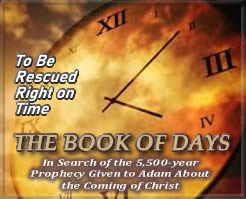Misconception #37 (Cont’d)
Jesus was Born on December 25th
Why does it matter what time of year Jesus was born? Isn’t it enough just to know He was born? And if it is so important to know, then why isn’t there anything in The Bible to help us determine when His birth took place?
Granted, for many who believe in Jesus Christ, nothing anyone says or does will change how they feel. For them, the time of year He was born simply doesn’t matter; all that concerns them is to know He was born, and so they’re perfectly satisfied to leave it at that. But unfortunately, the flipside of that conviction is that being a Christian doesn’t just involve believing what we believe for our own sakes and being done with it. It also involves having a responsibility to others—to ask ourselves how specific beliefs about God and Jesus relate to those around us. Consequently, we must face the fact that a great many people are confused by this debate. Many have come to a crossroad over this very issue, in which answers to questions about when Christ was born will inevitably lead them down one path or another.
And as these undecided ones stand at this crossroad, gazing up at the signs that aim them down various avenues, what do they see? The most obvious sign, of course, points to Jesus as being merely a savior among dozens of other saviors, all who are said to have died and risen again, and all—speaking directly to our present misconception—who are said to have been born on the 25th of December.
For example, the Babylonians worshiped a heroic figure by the name of Tammuz, who was miraculously born of Semiramis, the wife of Nimrod. Now, when I say miraculous, I don’t mean that Tammuz was born by way of a virgin—not even close, in fact, because clearly Semiramis had been married to Nimrod long before the birth of Tammuz. What we’re talking about is a miracle in the following sense: Long after her husband had died, Semiramis found herself pregnant; and because Nimrod had been worshiped as a god, Semiramis, hoping to capitalize on this, came up with the inspired idea of claiming that Nimrod’s soul had descended upon her in the form of a sunbeam and impregnated her. Thus, Tammuz was born, his “miraculous” birth equated ever after with the rebirth of the Sun, and so, too, was the legend of the Sun-god born, on … you guessed it … December 25th.
So powerful was this story of the rebirth of the Sun-god, which was clearly linked to the Winter Solstice that marked the shortest day of the year and the promised return of Spring, in no time a holiday observing the Sun’s rebirth was being held throughout the ancient world. Among the various personifications of the Sun-god: Horus of Egypt, Mithra of Persia, Dionysus of Greece, and Bacchus of Rome—all supposedly born at this same time of the year, and all associated with legends that spoke of their having been resurrected from the dead.
Story Continues Below
Says Richard Price—the founder and CEO of Academia.edu—on his podcast In Depth With Academia:
Fish Tales (From the Belly of the Whale): Fifty of the Greatest Misconceptions Ever Blamed on The Bible is:
To hear Price’s book review of Fish Tales (From the Belly of the Whale), CLICK HERE.
To hear Kent and Zen Garcia talk about correcting biblical misconceptions, from September 9th, 2021, CLICK BELOW.
Story Continues From Above
It’s this overabundance of messianic figures—insist detractors of Jesus as being the one and only true Savior—that demonstrates Christ is not unique among the pantheon of gods. “Jesus is not the Lord of all Creation,” they say, “not the Child Who’d one day rule the nations.” He’s just the product of an overactive Jewish imagination, an amalgam of all the dying-and-rising saviors that came before Him. And the key to proving it: “Look,” they say, “you’re all celebrating His birthday on the same day as all these other god-men!”
For this reason, then, the issue of what time of year Jesus was born shifts from one in which we’re defending a pleasant holiday, filled with fond memories of hearth and heart, to one in which we’re now aiding and abetting those who seek to undermine the very foundation of the Christian faith. In other words, when Christians insist there’s nothing wrong with celebrating Christmas on December 25th, they may just want to consider the possibility that in doing so they’re allowing Jesus to be denigrated through an association with every other pseudo-savior who claims to be born on the same day.
“What do we do, then, to counteract this attack?” you might ask. “Do we stop celebrating Christmas on December 25th? Do we do away with Christmas altogether?”
“God forbid,” I’d then reply.
“What? You mean you’re not saying we have to get rid of the Christmas trees, or the Christmas presents, or the Christmas carols?”
“Heavens, no; are you kidding? No, the carols stay. All of it stays—the trees, the presents, and most definitely the carols.”
“What, then? How do we counteract the idea that Jesus is just another alleged savior born of December 25th?”
“Very simple, really: We demonstrate from Scripture the actual time of year Jesus was born, and when we do, the entire argument of the detractors folds like a house of cards.”
“I don’t get it. How does that solve the problem?”
“Well, think about it: What’s the main argument of critics of The Bible? According to them, long before Jesus ever came onto the scene, there were all these other heroes who did all sorts of things that Jesus reportedly did—performing miracles, having twelve disciples, dying and resurrecting, ascending to Heaven, those sorts of things.”
“Right; and their all being born on December 25th.”
“That’s right. And how do they explain how it happened? They say it was because whoever wrote The New Testament borrowed from all these past lives, wove them all together, and concocted the latest version of the dying-and-rising hero—this time, called Jesus Christ.”
“So … if you can show that The Bible has Jesus … being born on some other day besides December 25th…?”
“Then the linchpin that holds together the argument that says the gospel writers lied about Jesus doing everything He did goes away, and down comes the cradle, baby and all.”
“Ahhh, I get it, yeah. But I thought The Bible didn’t tell us when Jesus was born; at least that’s what I’ve been told.”
“Well, if by that you mean it doesn’t come right out and say Jesus was born on such and such date, no, it doesn’t. But that doesn’t mean there isn’t a way to research events in Scripture to deduce the time of year Jesus was born, give or take a week or two.”
So, yes, as it turns out, contrary to popular belief, the antidote to this whole dilemma lies simply in a willingness to look to what The Bible has declared all along, even as traditions have grown up as a hedge to deter anyone from looking for themselves.
Let’s take some time, then, to examine the chronology of events as the Scriptures depict them, and you’ll see what I’m talking about.







